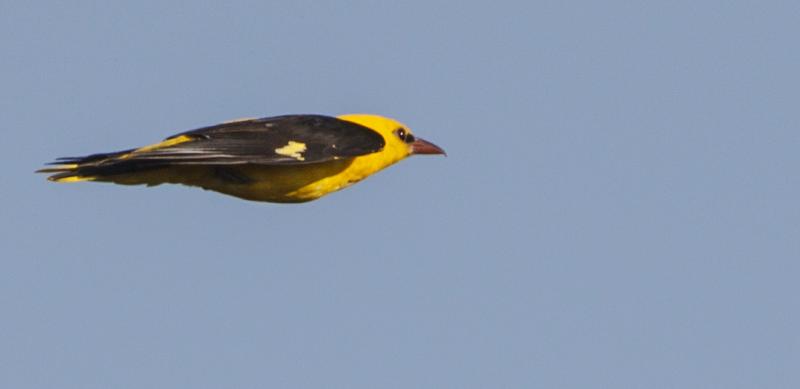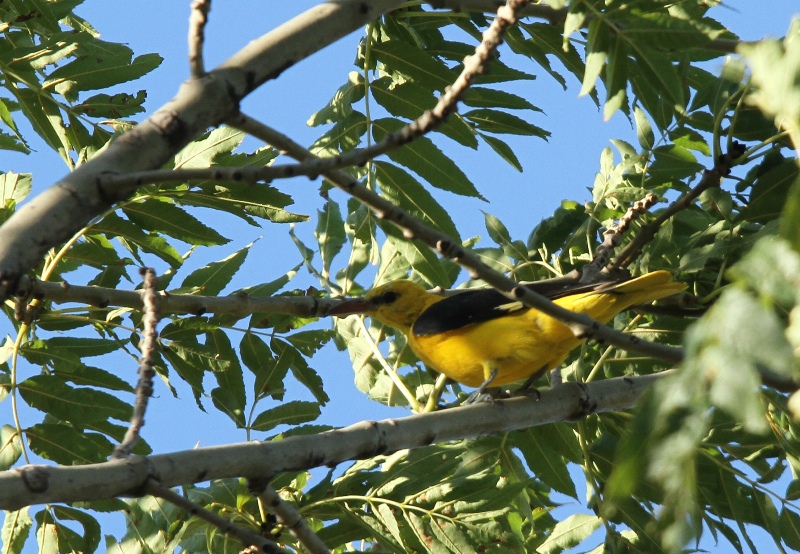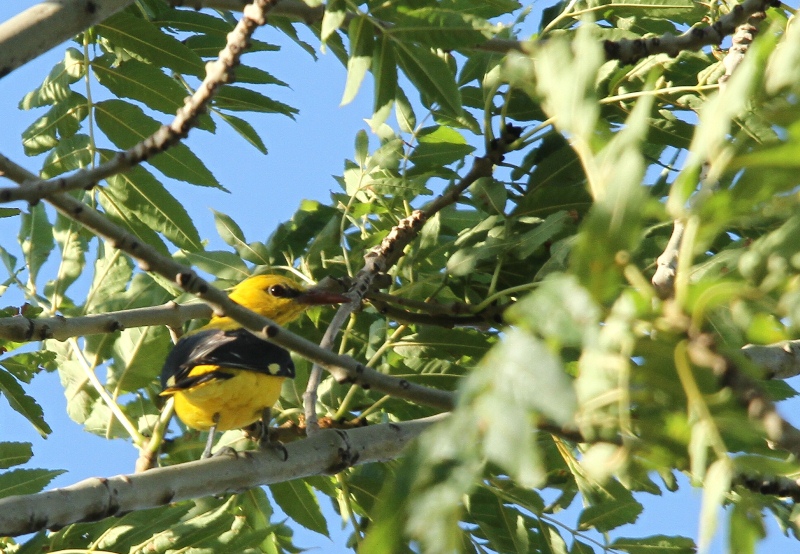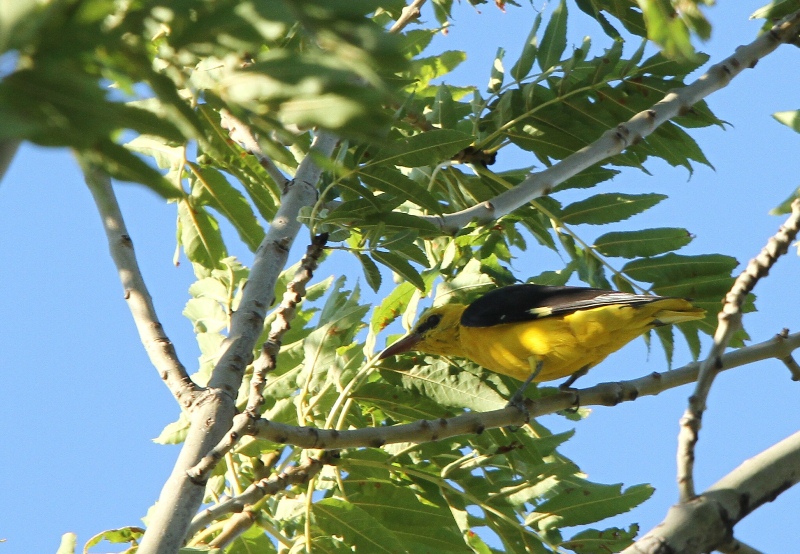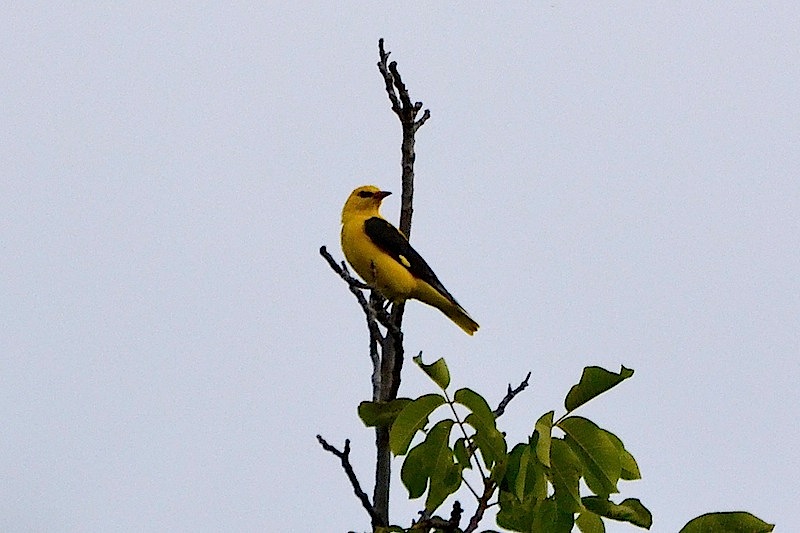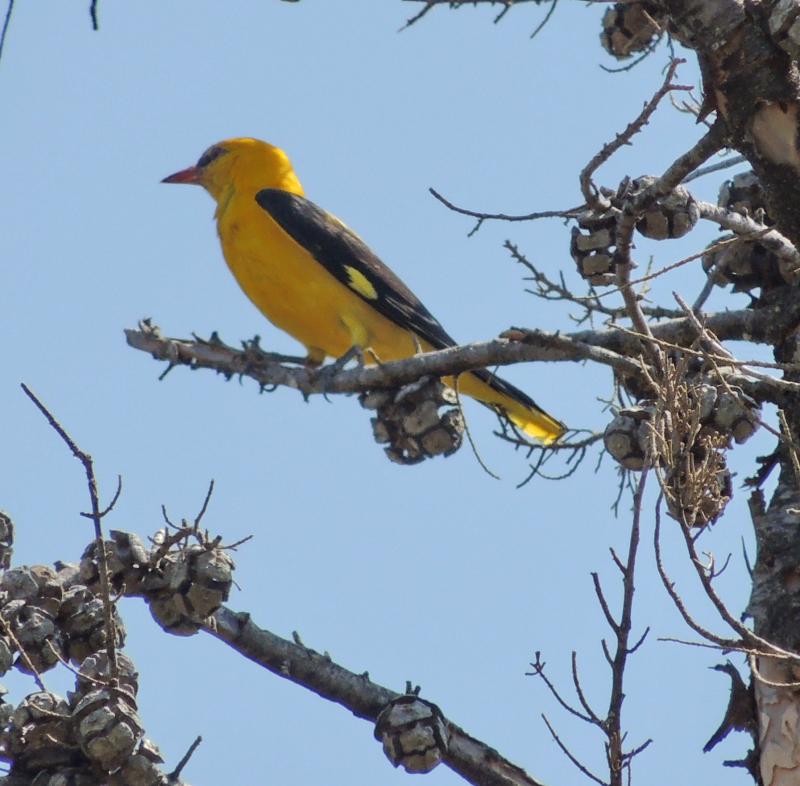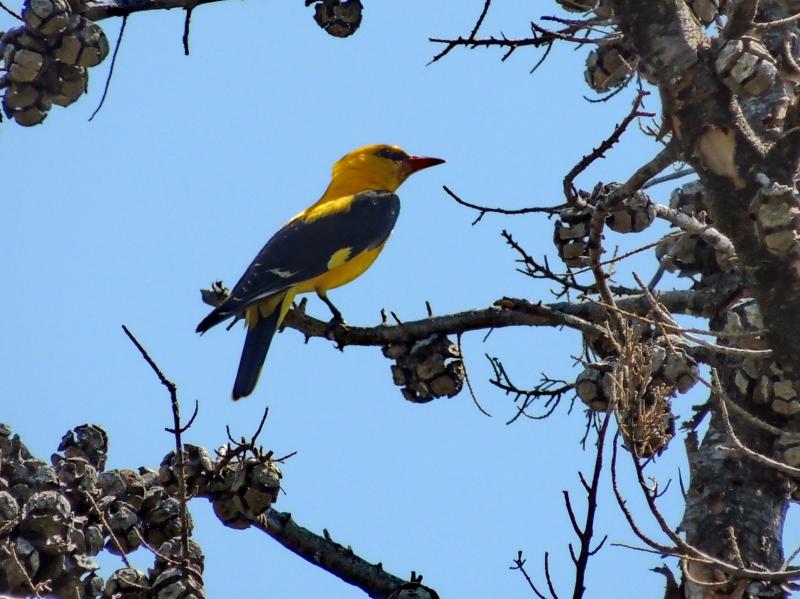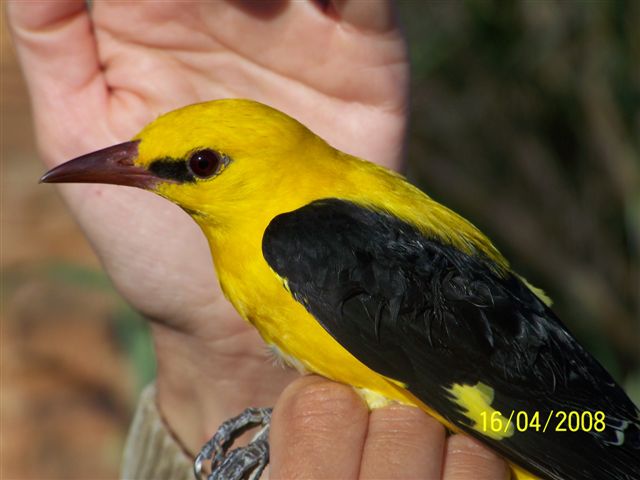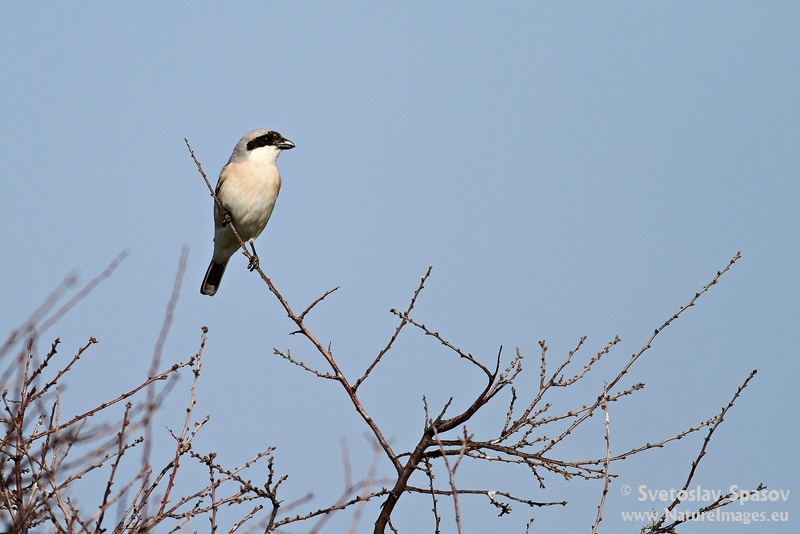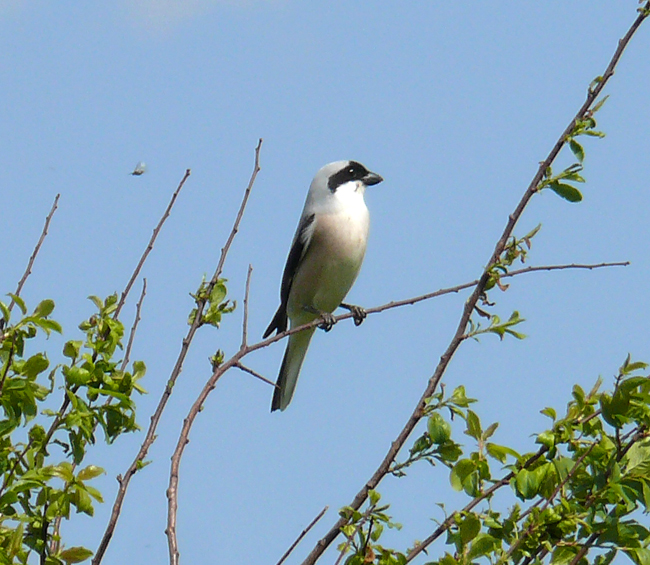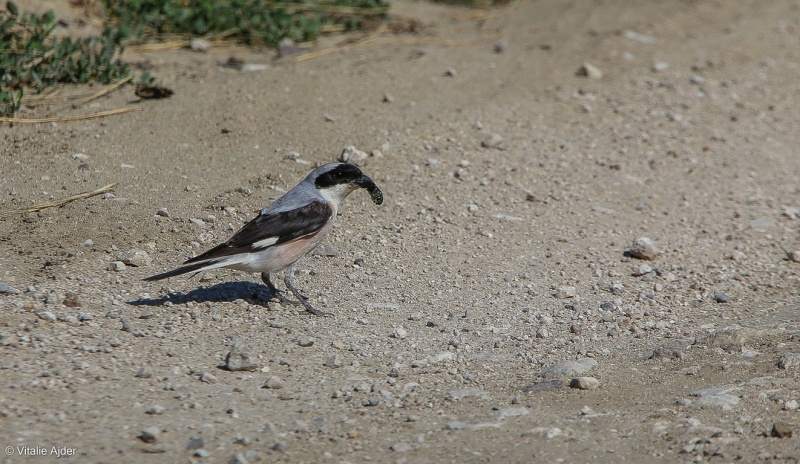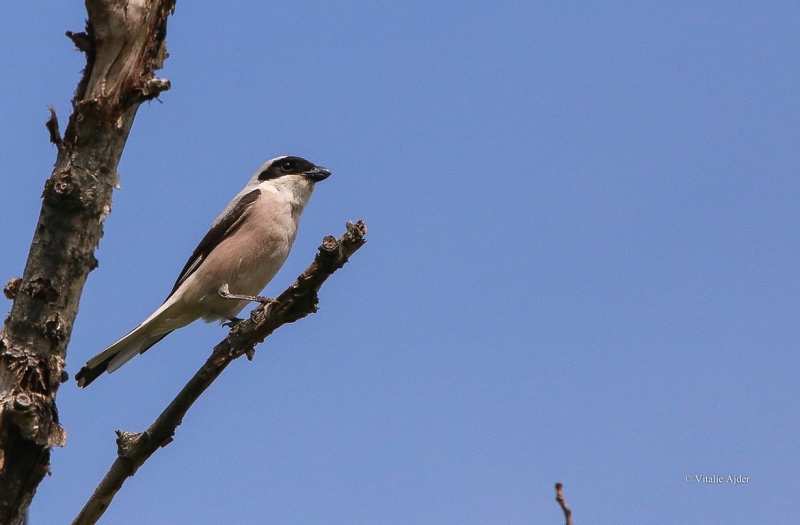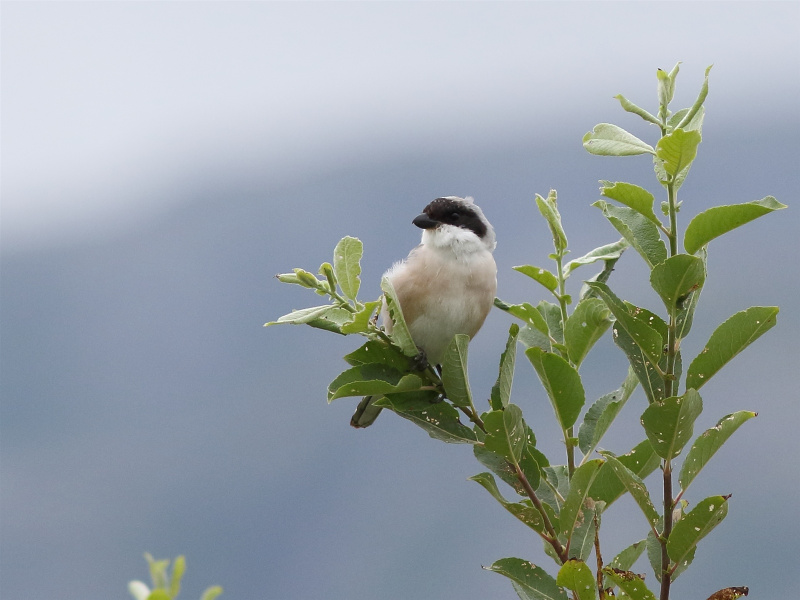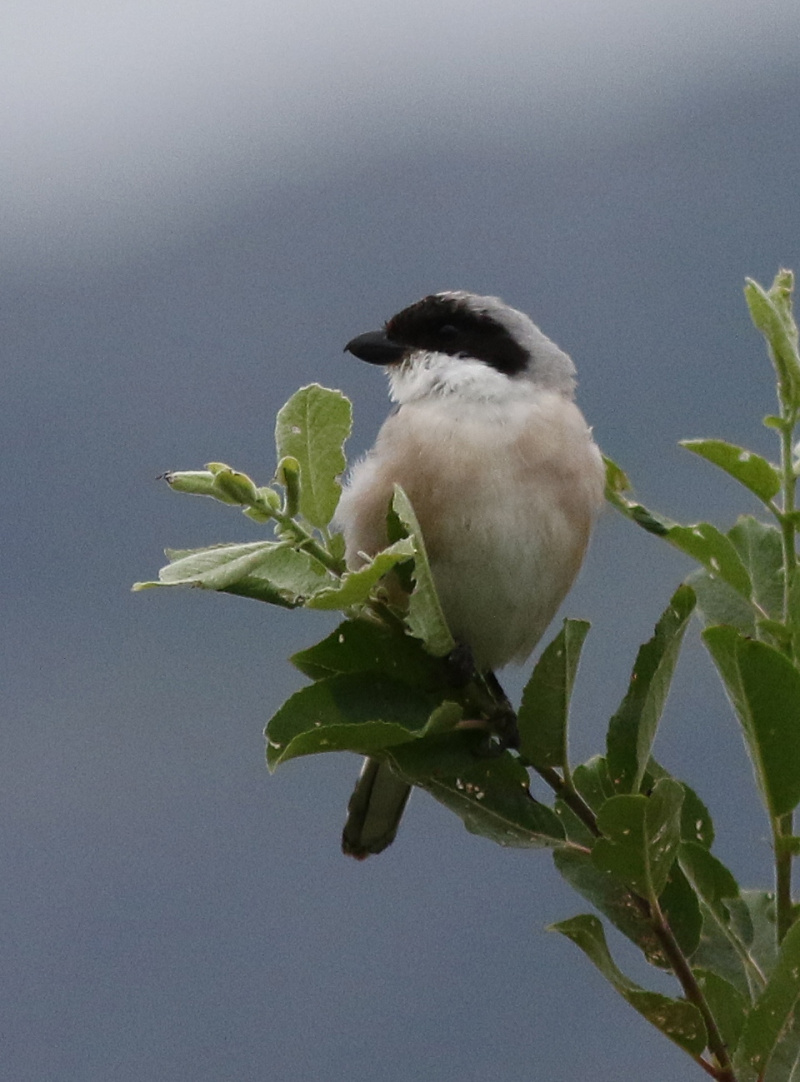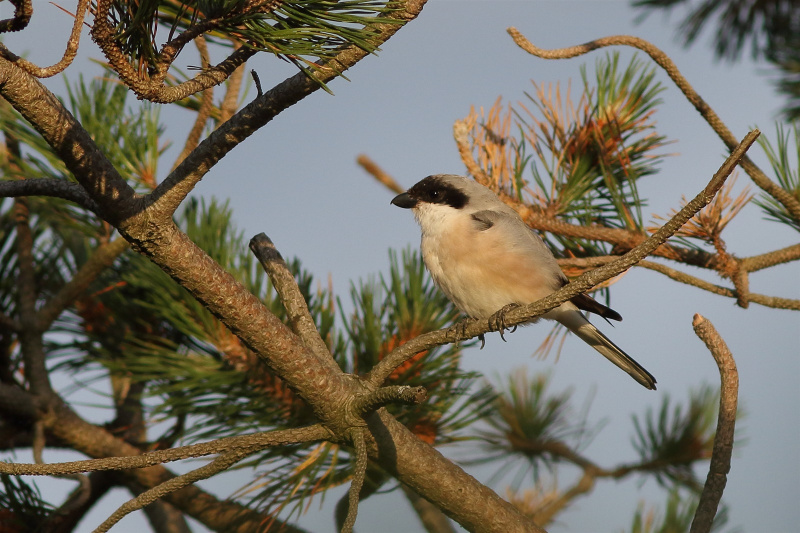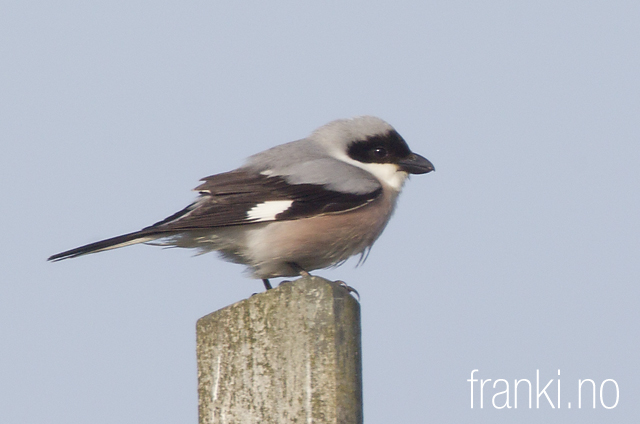Golden Oriole (Oriolus oriolus)
Lesser Grey Shrike (Lanius minor)
Adult male unmistakable if seen well. Body and head bright yellow, lores, wings and tail black. Females and young males less distinct, with lime-green back, pale, streaked underparts and black wings and tail. Bill quite strong with reddish colour in adults, and grey in young birds. Despite the bright plumage the bird is difficult to see due to skulking behaviour in foliage. Usually spotted when moving from tree to tree in undulating flight. Then resembles a large thrush or woodpecker, quickly darting upwards into the next tree-top.
Sound:Varied repertoire, but song and common contact call very distinct. Song a series of 1-2 seconds long phrases of 3-5 yodeling, clear, fluting notes, interspersed with 2-3 second pauses. Tone very full-bodied, melodic and pleasing. Contact call surprisingly different: A forced, drawn "weeackt", slightly resembling Jay, but less harsh, and much more nasal. Other sounds include a Wryneck-like warning call.
Contact call, song:
Distribution:
Wikipedia: map (se also Xeno-canto below)
Ecology:Birdlife ecology
Links:
Observation.org Latest observations
Image search Flickr NB! May give other species
CCIn all plumages told from Great Grey Shrike L. excubitor by very long primary projection, stout bill, large rectangular wing patch and extended white at base of tail. Tertials without white edge. Adult birds with black forehead (more extended in male and often speckled grey in female), and a pink wash to underparts (especially male). Immatures lack the black forehead and wing coverts have pale fringes.
Sound:Contact call a series of Magpie-like "che-che-che". Two very different types of territorial song: Most diagnostic is the short song which consists of a single, parakeet-like "irtscha". Like in a sneeze, with rapidly rising and falling pitch. Given monosyllabic, disyllabic or in series. Other song type very varied with lots of mimicry of other birds and mammals. Similar to Woodchat Shrike but usually also includes the call from the short song. The varied song is more subdued in mated males.
Short song:
Varied song:
Distribution:
Wikipedia: map (se also Xeno-canto below)
Ecology:Birdlife ecology
Links:
Observation.org Latest observations
Image search Flickr NB! May give other species
CC
 English
English Albanian
Albanian
 Armenian
Armenian
 Bulgarian
Bulgarian
 Catalan
Catalan
 Croatian
Croatian
 Czech
Czech
 Danish
Danish
 Dutch
Dutch
 Finnish
Finnish
 French
French
 Georgian
Georgian
 German
German
 Greek
Greek
 Hungarian
Hungarian
 Italian
Italian
 Latvian
Latvian
 Lithuanian
Lithuanian
 Macedonian
Macedonian
 Norwegian
Norwegian
 Polish
Polish
 Portuguese
Portuguese
 Romanian
Romanian
 Russian
Russian
 Sami : Lule sami
Sami : Lule sami
 Sami : North sami
Sami : North sami
 Sami : South sami
Sami : South sami
 Scientific names
Scientific names
 Serbian
Serbian
 Spanish
Spanish
 Swedish
Swedish
 Ukrainian
Ukrainian


